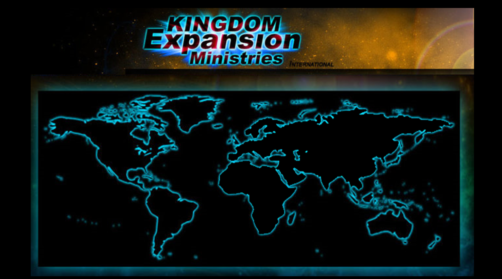GOD’S NOT ANGRY!
“Propitiation”
1 John 4:10 In this is love, not that we loved God, but that He loved us and sent His Son to be the propitiation for our sins.
Have you ever been driving and run into morning fog that was so dense you could not see as far as the front of your vehicle? I remember days when the fog would be so thick it would not be until early afternoon before it would dissipate. When there is no wind it may be a matter of waiting for the sun to burn off the fog. The process you wait through is called dissipation. The sun burns off the fog over time until it is all gone. I will come back to the fog a little later.
I was reminded of this process when I was trying to understand the word “propitiation.” In one Bible dictionary propitiation is defined as “an offering made to appease the wrath and conciliate the favor of an offended person.” Notice two effects. Wrath is appeased. But also favor is gained.
The word “propitiation” is found only three times in the New Testament and not at all in the Old Testament. In the Old Testament we find the word “atonement.” Both these words convey the thought of “reconciliation.” Paul told the Corinthians that God sent Jesus to reconcile us back to Himself. Being reconciled to Him, we now have the ministry of reconciliation (2 Corinthians 5:17). The word “atonement” appears in the New Testament once in the King James Version in Romans 5:11. However, other versions of the New Testament use the word “reconciliation” in that passage. A fuller understanding of “atonement” reveals that it only provides for the covering of sins before God. Every year the High Priest had to come again to offer the blood of a spotless innocent lamb to cover the sins of the nation from the past year.
“Propitiation” describes the effect of Jesus, as the perfect Lamb of God, offering His blood to cleanse away all our sins; past, present and future. The sins are not merely covered, they are washed away and God declares us completely righteous when we put our trust in that redeeming work of Christ. The word “reconciliation” is used to define both “atonement” and “propitiation.” Yet atonement only provided a partial temporary reconciliation between God and man. In contrast, propitiation provides complete and permanent reconciliation between God and those who accept His Son as the “propitiation” for their sins.
Under the Old Covenant only the High Priest could enter the Holy of Holies (in the earthly tabernacle made with hands) once a year to offer the blood of the sacrifice, and then he had to leave. He was actually coming into God’s presence in that small chamber. He could not remain there once his work was done because the blood of the innocent lamb did not eliminate his sin. If he made any mistake in the performance of his duty, such as remaining too long or touching the wrong thing, he could die immediately. That’s why they tied a rope around his ankle. So we see that the way into God’s presence remained closed to us in the Old Testament, despite the sacrifice of a sinless lamb every year (Hebrews 9:7-9).
In contrast, Christ went into God’s presence before God’s throne in Heaven to offer His blood which washed away our sin and opened the way for us to come into God’s presence ourselves and remain forever, even if we make mistakes when we come to Him now. This is why Paul could say in his letters that we are seated together in Heavenly places in Christ (Ephesians 2:6). This is perfect reconciliation to our Father in Heaven by the blood of a perfect sacrifice. This is why the word “atonement” is a poor choice in the King James Version of Romans 5:11. Reconciliation is the better choice.
But what about the dense fog on a day of no wind? To see a wonderful effect of “propitiation” consider Isaiah 12:1-3.
Isaiah 12:1–3
1 And in that day you will say: “O Lord, I will praise You; Though You were angry with me,
Your anger is turned away, and You comfort me.
2 Behold, God is my salvation, I will trust and not be afraid; ‘For Yah, the Lord, is my strength and song;
He also has become my salvation.’ ”
3 Therefore with joy you will draw water
From the wells of salvation.
God’s anger was never truly appeased by the offering of the blood of animals. Because the sin that separated God from us was not removed it was only covered. Yet the word propitiation means that the anger of an offended party “dissipates” – like fog which burns off quickly under the intense heat of a brilliant sun. It burns off until it is all gone. But propitiation means more than even that our sins are removed. It also means that the one who was in disfavor because of transgressions is now returned to a position of favor. The pauper truly becomes a prince. God’s anger is not only turned away, it is gone, but also God beckons us to come closer. The closer we come the more clearly we see the smile on His face that His children (that’s us) are returned to Him. He takes us into His arms and comforts us until all the fear and pain of being separated from Him, expecting to be punished, are removed. As we understand that Jesus has paid for all our sin, the fear of His anger returning loses all its power. The law of the Spirit of life in Christ truly sets us free from the law of sin and death (Romans 8:2).
Colossians 1:21, 22
21 And you, who once were alienated and enemies in your mind by wicked works, yet now He has reconciled 22 in the body of His flesh through death, to present you holy, and blameless, and above reproach in His sight—
Where condemnation was the man’s due from God, now God acquits and accepts fellowship with the man. This is more than simply being okay now. This person is now in a favorable position with God. He was not innocent, he was a sinner. Now he is honored and promoted to the position of a son due to the work of Christ. All the promises, blessings and graces of God are fully available to the redeemed and justified person through Christ’s standing in as our propitiation.
- If someone’s wrath is appeased, it means their anger and their desire to retaliate dissipates until it is gone. Jesus bore our punishment away (Isaiah 53).
Let’s return to our analogy of fog. In case you had not realized it, the fog represents the anger of God. Just as the fog dissipates in the heat of the sun, God’s anger dissipated as He saw His Son become the propitiation for our sin. He is not angry anymore. In the natural realm the fog may set up just as dense the next day, unless something changes in the atmosphere. One sure sign of a permanent change is a refreshing wind accompanying rains from the heavens. As Jesus sat down at the right hand of God the Father He released the Holy Spirit Who came in as a mighty rushing wind on the day of Pentecost. There has been a shift in atmosphere for the believer. Now we are in Christ, as He is seated at the Father’s right hand. We have His Holy Spirit joined to our spirits so that each of us is one spirit with Him (1 Corinthians 6:17).
Whenever we begin to think that Father God is angry with us, we need to remember that Christ has paid the full price for all sin. In that moment, worship God. Thank Him for sending Jesus to be the propitiation for all your sin and the Holy Spirit to guide you into all the truth of your privileges as sons and daughters of the Most High God. Those who are led by the Spirit of God are the sons of God (Romans 8:14). And those who walk with the Spirit will not fulfill the lusts of the flesh (Galatians 5:16). Continue studying and you will discover how the grace of God will actually train you to say, “No” to sin and “Yes” to the Spirit of God (Titus 2:11, 12). The fruit of the Spirit, which includes self-control, will naturally grow within you. As it does you will discover over and over again that there is no law against your natural responses (Galatians 5:23). God the Father will rejoice in you every day as you discover that you really are a brand new creation, able with joy to draw water from the wells of salvation (2 Corinthians 5:17; Isaiah 12:3).
Hallelujah!
Does all this seem unreal to you? Keep reading. We will answer those questions. The Gospel really is good news.

